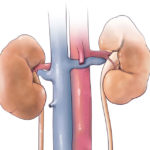Kidney Transplant Program and the Psychosocial Power Team: Expanding Care Through Collaboration
Kidney Transplant Program and the Psychosocial Power Team: Expanding Care Through Collaboration https://pediatricsnationwide.org/wp-content/uploads/2021/03/AdobeStock_104336092-1024x683.jpg 1024 683 Leslie Feldman Leslie Feldman https://secure.gravatar.com/avatar/?s=96&d=mm&r=g- September 21, 2023
- Leslie Feldman

In the United States, the availability of psychosocial services within pediatric nephrology centers varies widely – despite a well-documented necessity for the provision of holistic care. For the most part, the landscape of available psychosocial services within pediatric nephrology care is poorly characterized.
However, the effects of kidney disease on emotional health and health-related quality of life are well documented, as is the impact of social determinants of health on kidney disease outcomes.
In a recent PLOS One study, a collaborative project conducted including researchers and clinicians from Nationwide Children’s Hospital assessed pediatric nephrologists’ perceptions of available psychosocial services and elucidated inequities in access to psychosocial care. A web-based survey was distributed to members of the Pediatric Nephrology Research Consortium (PNRC) and quantitative analyses were performed.
Forty-nine of the 90 PNRC centers responded to the survey. Regarding dedicated services, social work was most commonly available (45.5–100%), followed by pediatric psychology (0–57.1%) and neuropsychology (0–14.3%), with no centers having embedded psychiatry. Availability of psychosocial providers was positively associated with nephrology division size, such that as center size increased, access to various psychosocial providers increased. Notably, the majority of respondents indicated that the perceived need for psychosocial support exceeds that which is currently available, even at centers with higher levels of current support. On dialysis units specifically, additional psychosocial supports were variably available, with Child Life as the most available service (76.5%-100%) with all other services far more rare.
In part as a response to the results of a recent study in PLOS One, an interactive team of multidisciplinary clinicians at Nationwide Children’s established the Psychosocial Power Team Development (PSPT) program, with a focus on hemodialysis patients. The team is made up of therapeutic recreation, child life, massage therapy, music therapy, nurse educators, school teachers, psychologists, social workers and dietitians. They work to create educational and fun themes around learning about health, coping with emotions and medical interventions, partnering with medical providers, and supporting adherence, usually having different activities each week or for different periods of time. They celebrate birthdays and medical successes, and partner on goals to improve quality of life on dialysis.
“Our PSPT program is aimed at improving care for our hemodialysis patients, who likely have the greatest challenges to their quality of life and are at the hospital several times a week, for a few hours at a time, for lifesaving care,” said Anne Dawson, PhD, pediatric psychologist and co-director of the Kidney Health Advocacy and Community Engagement (KHACE) initiative at Nationwide Children’s.
“In addition, through PSPT, we can now do transplant conversations earlier, with more opportunities and a leveler playing field,” adds Dr. Dawson. “We are working on a plan to use objective data to signal a referral to transplant to reduce unintentional bias in the referral process and arm patients and families with information as early as possible in their path toward transplant so they can make informed decisions and feel supported in feeling ready for transplant. This is a huge team effort and one we hope to share with nephrology divisions elsewhere.”
Reference:
Dawson AE, Wilson CS, Smoyer WE, et al. Psychosocial supports within pediatric nephrology practices: A pediatric nephrology research consortium survey. PLoS One. 2023;18(5):e0285126.
Image credit: Adobe Stock
About the author
-
Leslie Feldmanhttps://pediatricsnationwide.org/author/leslie-feldman/September 25, 2023
- Posted In:
- Uncategorized



